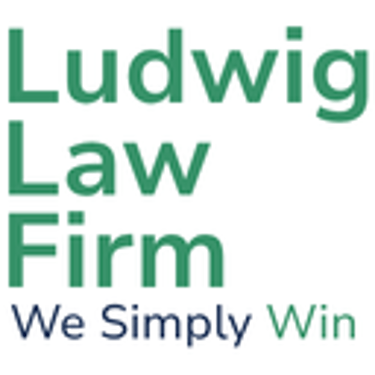
Understanding Federal Consumer Fraud Charges in Arkansas
Learn what counts as federal consumer fraud, who investigates these crimes, and how to defend against them. Ludwig Law Firm protects Arkansas clients.
FEDERAL CRIMINAL DEFENSE
Common Types of Federal Consumer Fraud
Federal consumer fraud charges typically involve accusations of deceptive business practices, false representations, or financial trickery used to wrongfully obtain money, goods, or services. The most common types include:
Consumer fraud is one of the most aggressively investigated white collar crimes in the United States. From Little Rock to rural Arkansas, federal agencies track financial deception closely. If you’ve been contacted about a consumer fraud investigation or charged with a federal offense, it's time to understand your rights and legal options.
At Ludwig Law Firm, our federal criminal defense attorneys help professionals, business owners, and everyday Arkansans protect their future when under federal scrutiny. We often partner with powerhouse firms like Warden Law Firm, combining negotiation finesse with courtroom firepower to cover the full spectrum of defense strategy.
As always - if you have a legal question you want answered in a future blog, submit it via the form on this page. Now, let's dive in!
Fraud schemes often target vulnerable groups like seniors and students. But anyone can become a victim—or be accused of committing fraud.
What Federal Agencies Investigate Consumer Fraud?
Investigations are typically led by one or more of the following federal agencies:
Federal Trade Commission (FTC)
Consumer Financial Protection Bureau (CFPB)
Federal Bureau of Investigation (FBI)
Securities and Exchange Commission (SEC)
Each agency has the authority to bring civil or criminal enforcement actions, sometimes in partnership with the Department of Justice (DOJ).
What Statutes Are Commonly Used to Prosecute?
Since consumer fraud can involve a variety of schemes, prosecutors often rely on flexible statutes like:
Wire Fraud (18 U.S.C. §1343)
Mail Fraud (18 U.S.C. §1341)
Identity Theft (18 U.S.C. §1028A)
False Statements (18 U.S.C. §1001)
Defense Strategies in Consumer Fraud Cases
The right strategy depends on the specifics of the case, but common defenses include:
1. Lack of Intent
Many fraud charges require proof that the accused intended to deceive someone. A strong defense may argue the accused acted in good faith or made a mistake without malicious intent.
2. Entrapment
If a government agent induced the conduct, the case could be thrown out on grounds of entrapment.
3. Unlawful Search or Seizure
Evidence gathered in violation of your Fourth Amendment rights can be excluded from trial.
4. Negotiated Resolution
In many cases, we can reduce the charges or avoid prison altogether through strategic negotiation and early intervention.
You Don’t Have Time to Wait
If you're being investigated or charged with federal consumer fraud, time is critical. Contact Ludwig Law Firm today at 501-838-4043 or visit ludwiglawfirm.com to schedule a confidential consultation. Contact Ludwig Law Firm's Arkansas criminal defense attorneys at 501-838-4043 or visit our federal criminal defense page for your free consultation.
📞 Call Ludwig Law Firm today at 501-838-4043
🌐 Visit us at ludwiglawfirm.com
📍 Proudly serving clients in the Eastern and Western Districts of/across Arkansas, including Little Rock, Conway, and Pine Bluff.
Disclaimer: The information provided in this blog is for general informational purposes only and is not intended as legal advice. Reading this blog or interacting with Ludwig Law Firm through this content does not create an attorney-client relationship. Every legal case is different, and you should not act or rely on any information in this blog without first consulting with a licensed attorney about your specific situation. For legal guidance tailored to your needs, please contact Ludwig Law Firm directly.
Frequently Asked Questions
Q: What are the penalties for federal consumer fraud?
A: Convictions can lead to years in prison, heavy fines, and restitution orders.
Q: Can I be charged if I didn’t know what I was doing was illegal?
A: Possibly. But lack of intent is often a valid and successful defense.
Q: What should I do if I’m under investigation?
A: Call a defense attorney immediately. Do not speak to investigators without counsel.


